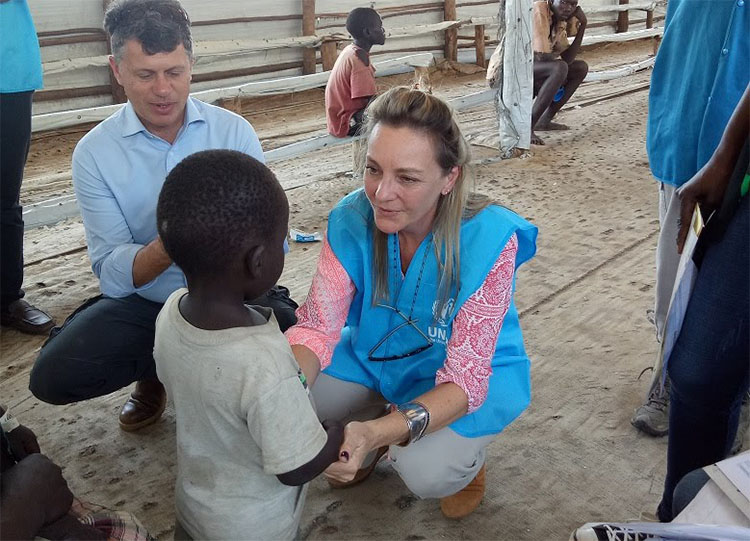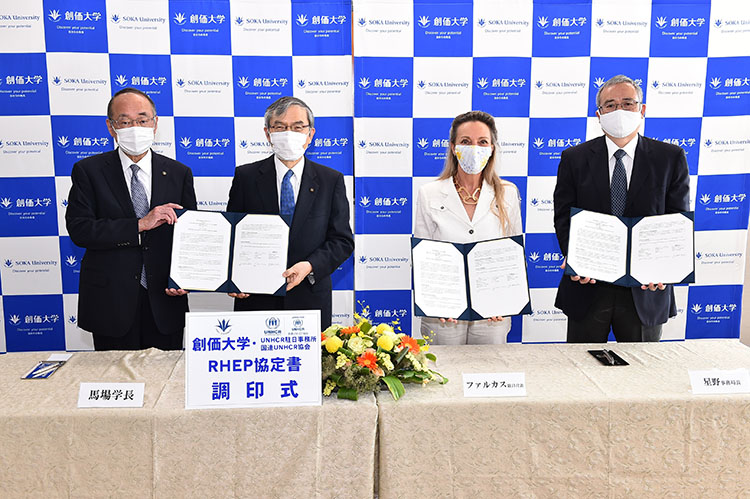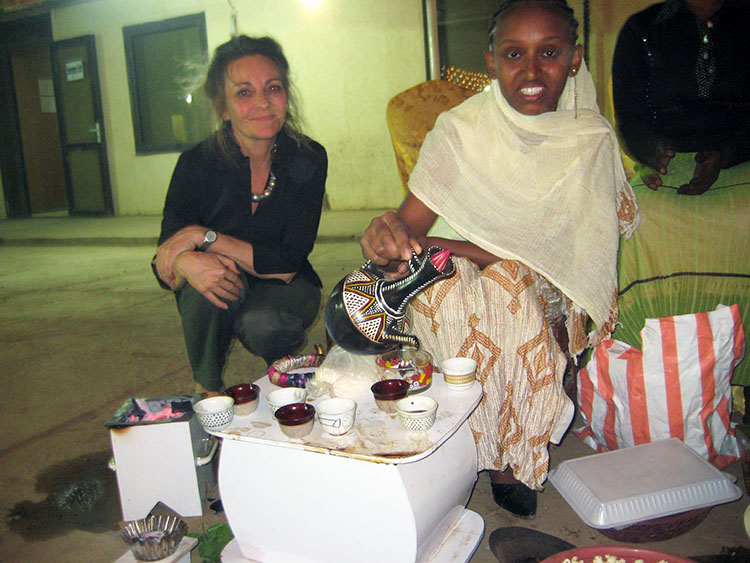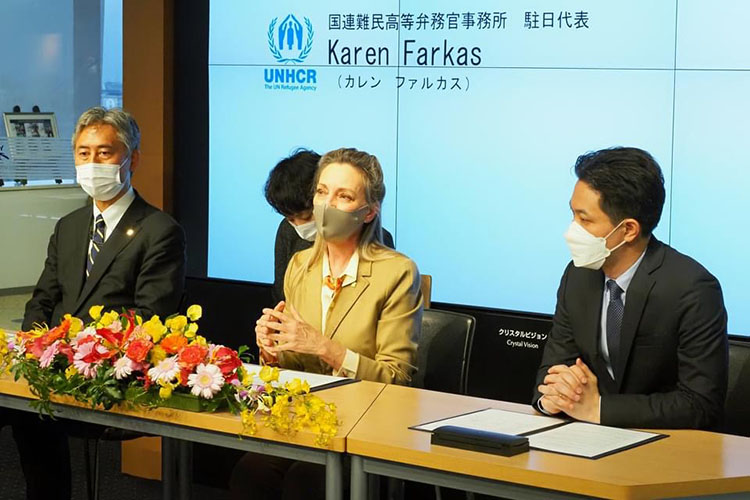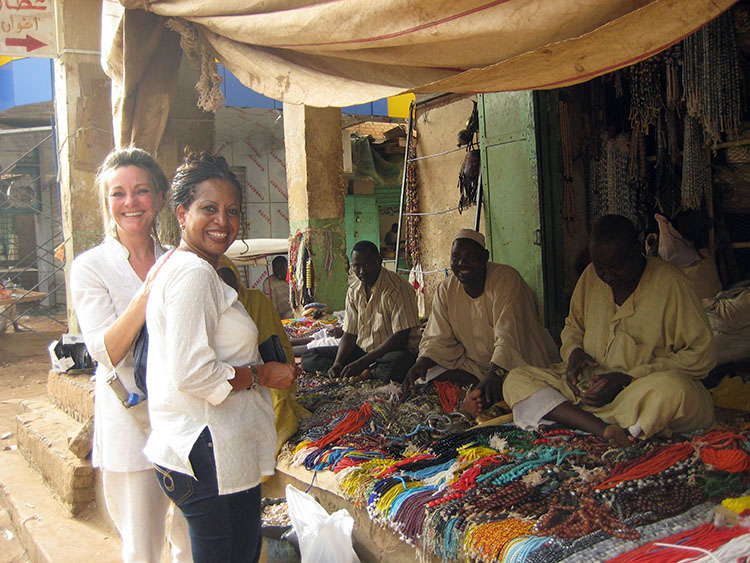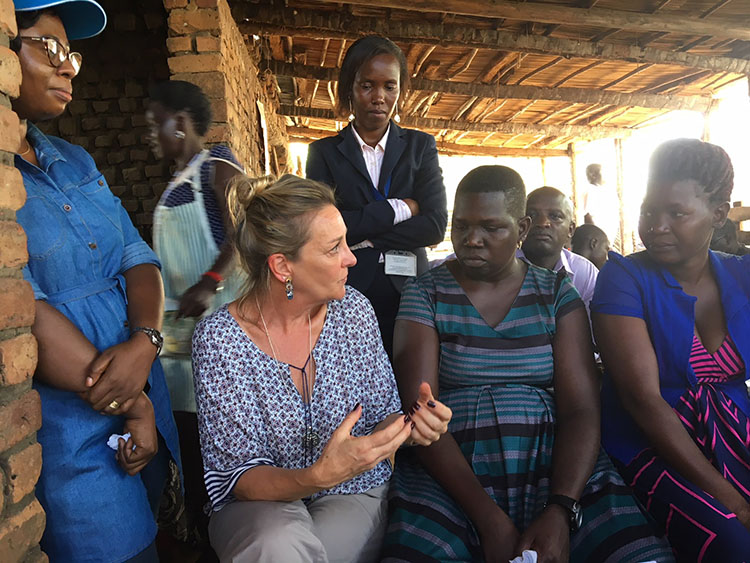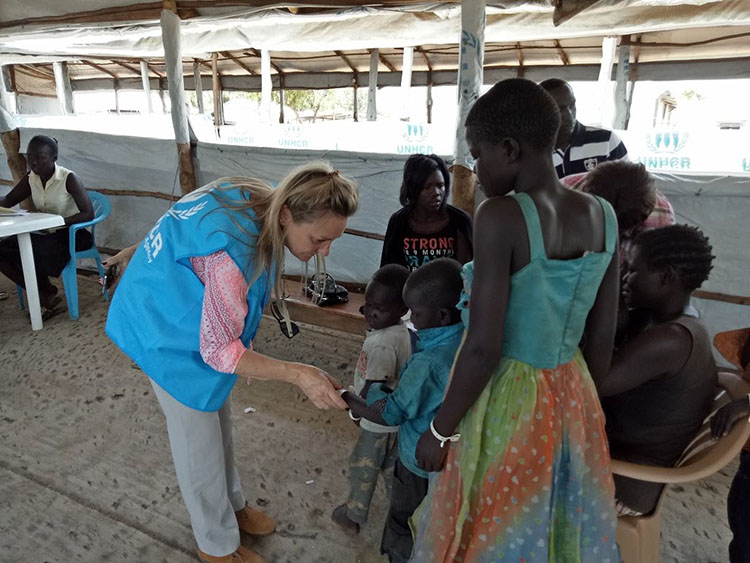“Life is full of surprises,” says Karen Farkas. “I just wanted to travel. When I was 10 my mother took me and my brother to the United Nations office in Geneva. I still remember all the international flags waving outside this beautiful, imposing building. After that, every time anyone asked me what I wanted to do with my life, I would say I wanted to be a guide at the UN.”
There were a couple of detours on the journey back to the global organisation dedicated to maintaining international peace and security, developing friendly relations among nations, and promoting social progress, better living standards and human rights.
First Karen commenced studies in economics, accounting and law. But at the age of 20, during a year off travelling, she found herself fulfilling a month-long contract in the United Nations’ finance department. “It was a bit of an accident, but I quickly realised that this was what I was looking for,” Karen says. “I worked from 1982-86 with the UN High Commission for Refugees (UNHCR) in Geneva, including six months in the Central African Republic, which was when I decided I needed to finish my degree.”
After fast-tracking the rest of her studies in Financial Administration at UNE, Karen returned to UNHCR and worked there for another three years, before enjoying a brief stint in the corporate sector. She was again lured back, with an offer to work in northern Iraq. It was the first of many complex and confronting assignments in difficult and dangerous locations like the Democratic Republic of Congo, North Macedonia and South Africa. In addition, Karen held key positions in UNHCR’s headquarters in Geneva as the Controller and Director of Financial Administration, Director of Human Resources, and Inspector General.
“It’s been an amazing journey,” Karen says. “I don’t regret a single day, a single hour. It was not always easy, but I loved it, and I came to understand so much more about what’s going on in the world.”
The guardian of the 1951 Convention on the Status of Refugees, the UNHCR has had to evolve over the years to meet increasing and ever more complex refugee needs. Initially, the UNHCR provided support through the practice of doctrinal law and provided human rights-based protection such as access to food, shelter, medical care, and education directly or through partners. More recently, with the adoption by the General Assembly of the UN of the Global Compact for Refugees, it was recognised that meeting the needs of the world’s refugees and forcibly displaced populations is not only the responsibility of UNHCR and states, but also of society. UNHCR continues to advocate for the prevention of forced displacement and solutions to the growing number of refugees, but now also plays an increasingly important role in developing and encouraging partnerships with the private sector, academia, youth, cities and mayors, faith-based organisations and civil society to engage in the refugee response.
With a workforce of 19,000 in 125 countries and a budget of US$10 billion, that carries significant risks: being accountable to refugees and displaced persons, preventing harm to the environment, managing people, money, supplies, and ensuring integrity in implementation and decision-making to protect UNHCR’s all-important reputation.
“And that’s what I specialised in,” Karen says.
But because the UNHCR has a mandatory mobility and rotation policy, professional officers sign up to be mobile. “So, for the duration of my career I worked in many different places in many different roles,” Karen says. “In the field, my job was to ensure we had a functioning, safe, respectful workplace and that people were equipped to do their jobs, especially on the frontline in refugee camps, for instance.
“At the corporate level, the pressure was associated with managing and accounting for public funding. And you have all these different stakeholders, including donors, governments and the executive board, and the people out there working every single day. In the field, you work in very dynamic environments, so your risk analysis and decision-making needs to be nimble and flexible.
“It was not just a job or a salary; it was a way of life. It was meaningful work, I had real purpose and diverse career opportunities, I was given a lot of independence and met amazing people from different cultures all over the globe. I came to understand how deeply interconnected we all really are.”
But working for an apolitical organisation struggling to meet a growing need in politically contested spaces brought immense challenges, too. By the end of 2022, 100 million people were living in forced displacement internationally.
“We have a moral obligation to resolve the conflicts that have caused this displacement,” Karen says. “International collaboration seems unable to make peace, unable to prevent catastrophes, share vaccines or reduce risks from climate emergencies; there’s just no political will and this is a major concern.
“At the moment, nearly 70% of the world’s forced displaced people come from five situations, so if we resolved the violence, discrimination and conflict in Afghanistan, Venezuela, South Sudan, Syria and Myanmar, then 70% of people currently living in forced displacement could return to their homes. We need political solutions, otherwise many people will die, children will starve and there will be generations who do not receive any form of education. Finding solutions is becoming the challenge of the 21st century.”
It was a big decision for Karen to leave UNHCR last month. “It has been so much a part of my adult life and my identity, but I need to make space for my younger colleagues to come through and I now need to take care of my own family,” she says. “Of course, I won’t leave the UNHCR behind; it will always stay with me.
“I have seen people go through incredible trauma and tragedy, but I have also seen how such tragedy can be overcome by hope and kindness. And generosity. They don’t have much, but I would visit refugee camps and sit with women and children, and they would make something special and share it with pride and joy. The poorest people in the world are some of the most generous I have ever come across.
“I have had children named after me; I’ve had wooden sculptures made of me. And by people with extraordinary patience and tolerance, who have no agency and whose lives depend entirely on others. And they wait and they hope. We see them as statistics, but every one of them has a story to tell. I think that is what kept me going … continuing to want to be with them, work with them, and work for them, for a better outcome.”
As the international spotlight continues to shine on the war in the Ukraine, Karen hopes it marks a turning point. For the number of displaced people globally is at an all-time high.
“Five million people have had to move within the borders of Ukraine and another eight million have crossed its borders into neighbouring countries,” she says. “Ukraine is at least making the refugee crisis more understood and more seen. People are seeing what can happen overnight.”

